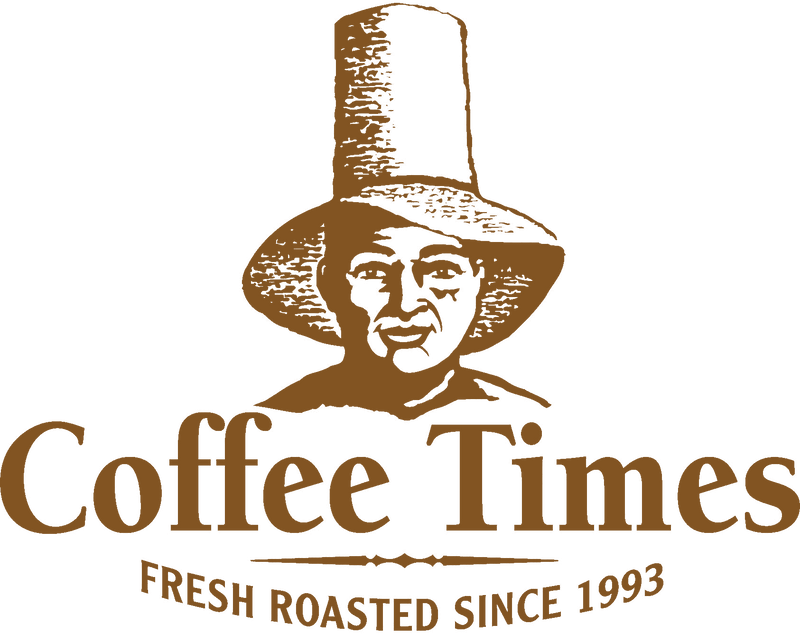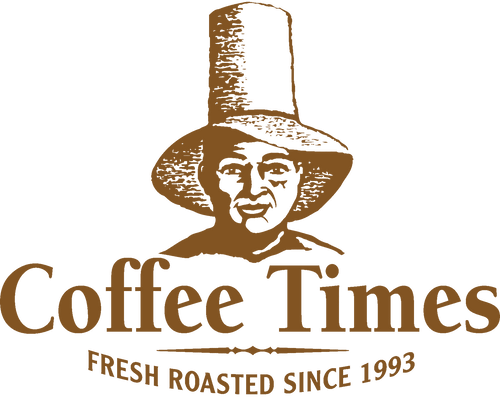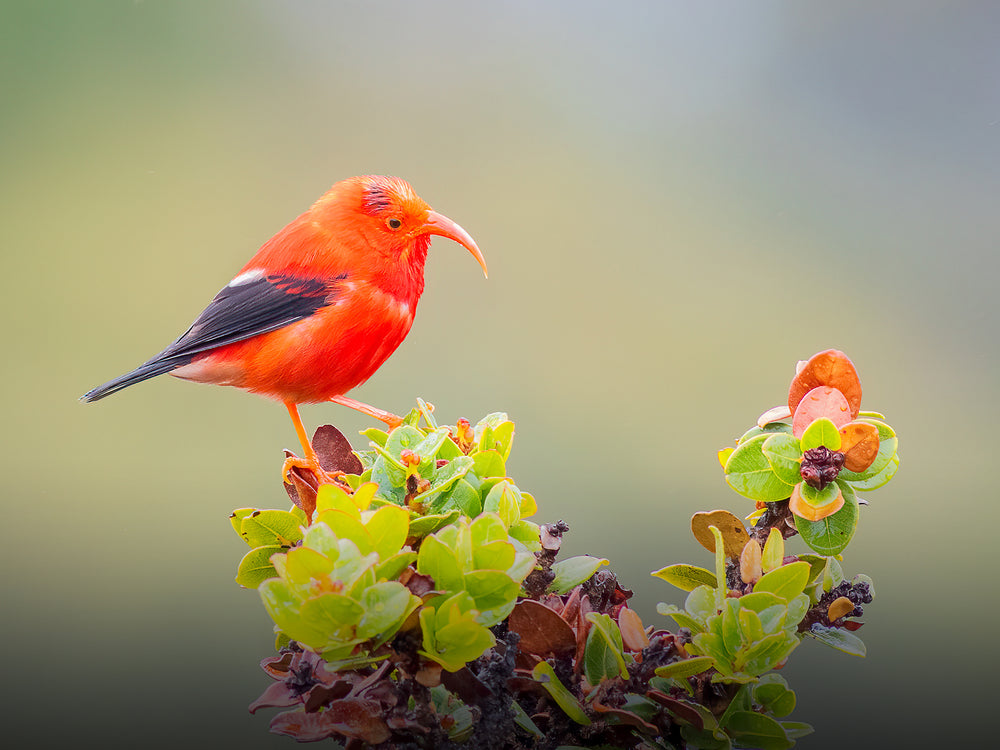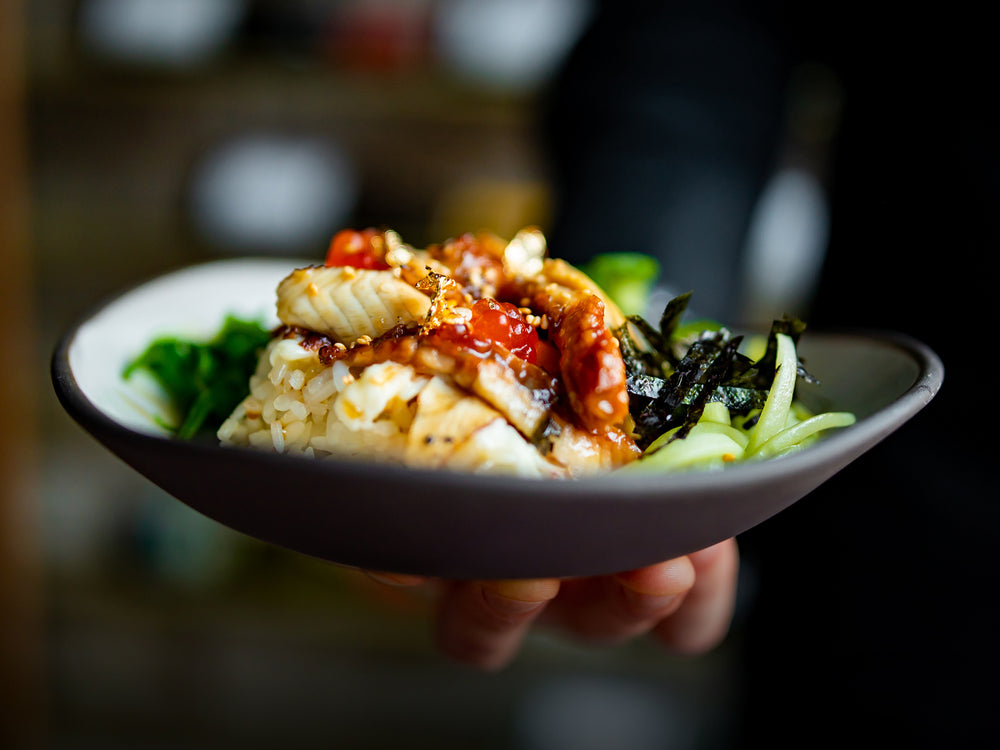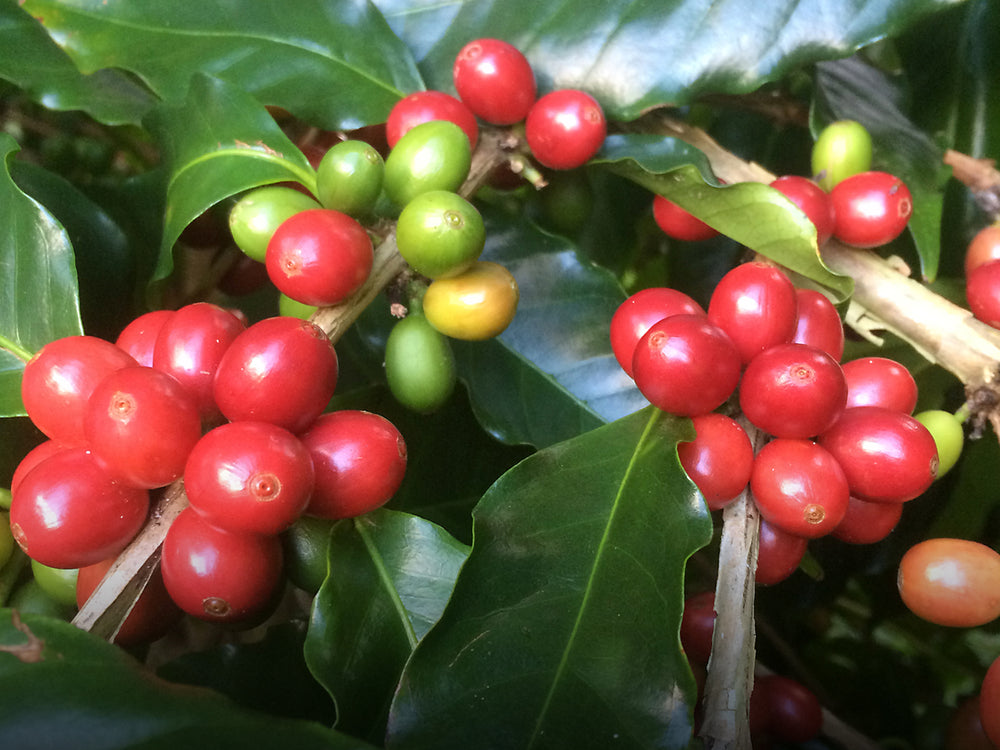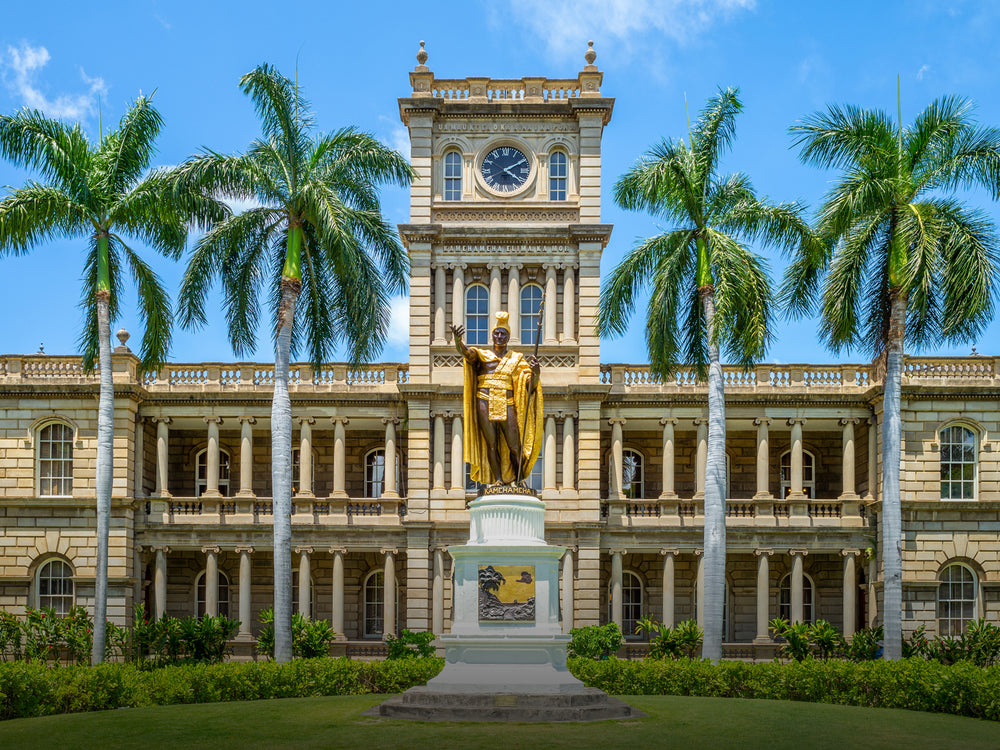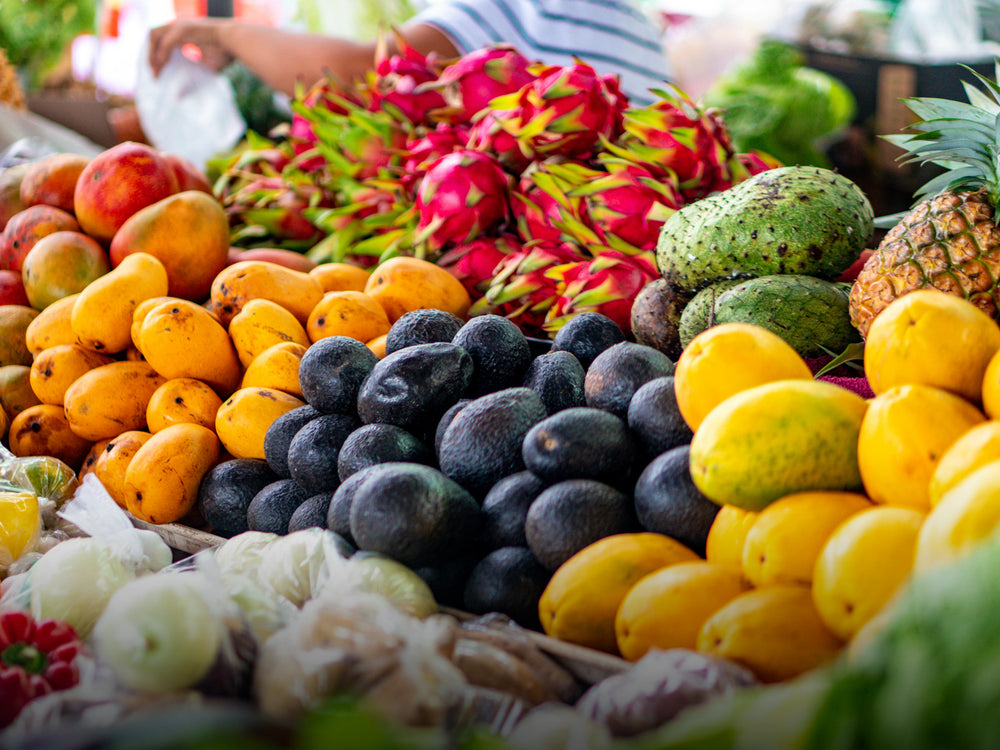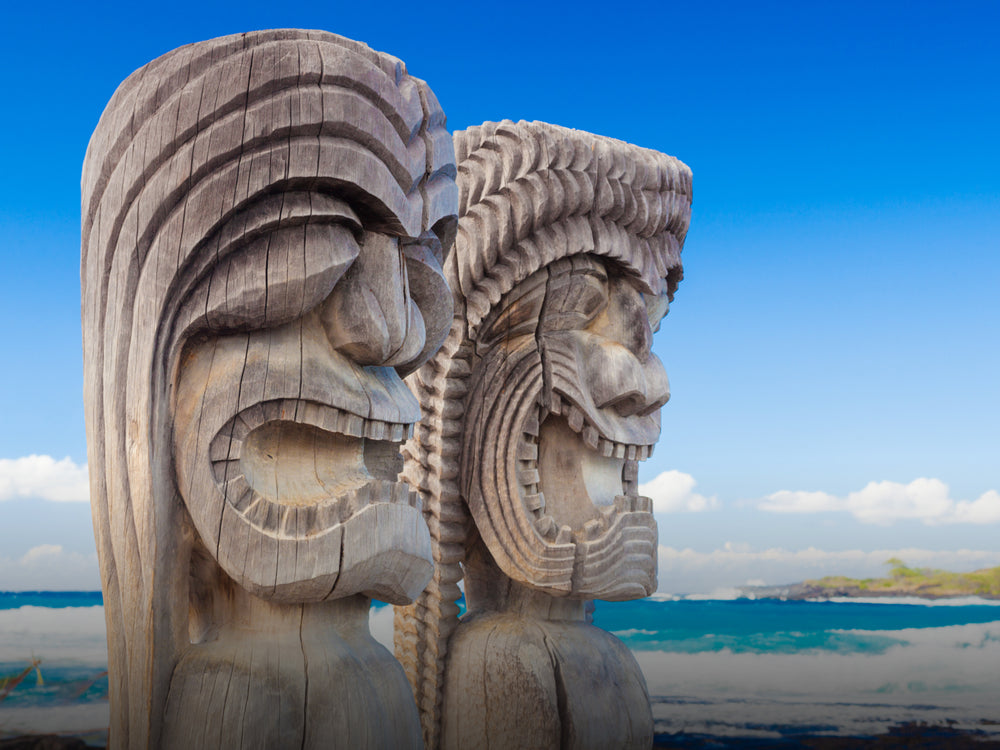1999 Downfall of Kona Coffee
Can our Local Industry Sustain Itself?
By Les Drent
After writing for six years on the subject of Kona coffee and having expended countless number of hours lobbying and writing for the protection and preservation of our Kona coffee name, I have sworn many times to remove myself of any personal involvement within this industry outside of my coffee roasting and retailing business which I truly love and enjoy to work at. At times it just becomes too taxing on the system. And after all, it’s like my old mentor, Jerry Greenfield of Ben & Jerry’s Ice Cream says, if it’s not fun why do it? (It's probably true that someone else coined this phrase but Jerry made it into a bumper sticker so I'll credit him.) But it is this same passion and pride and also enjoyment I derive from producing a "100% Hawaiian Made" product that continues to fuel my editorial fires, and why every six months I get up on my soap box set my opinions free and write on the subject of what is happening within our embattled Kona coffee industry. Believe it or not every time I'm finished writing I do feel like I've helped to shed a little more light on the subject and hopefully pushed us all a little closer to a more sustainable future for 100% Kona coffee.



Without the advertising support of these 100% Kona coffee companies the printing of this article and magazine would not be possible. Mahalo to them and all of our advertisers!
While the popularity of 100% Kona coffee, number of farms, coffee trees and planted acreage in Kona continues to increase, serious issues relating to long term economic self-sustenance still confront our industry. Many communities around our state would like to support a life-style based on self-sustenance however, Hawaii continues to import 90% of its food products from outside of the islands. And while it is my opinion that our lives are manipulated and controlled far too much by forces of negative growth and runaway capitalism it seems that this same growth is inescapable as our nation pushes for a more streamlined and homogenized way of life. In Hawaii this system unfortunately involves a mode of business that all too often packages Hawaii into nothing more than Taiwan Made trinkets.
As for 100% Kona coffee it is problems like the C. Brewer company whose trucks bearing the name Royal Kona Coffee on the back weave their way in and out of plush island resorts delivering bogus Kona Blend coffee. Restaurants then sell this same coffee as Kona on their menus. It seems apparent that this is exactly what epitomizes the entire state of Hawaii’s economy which has been in desperate times for over ten years now. It is this selling out ethic and greed that has become an all too common business practice with a host of age old companies that saw their roots first nurtured in the Hawaiian soil whether it be in sugar cane, pineapple, or coffee production.
The main question continues to be, what if anything can help our 100% Kona coffee industry succeed in today’s marketplace in the midst of these unfair trade practices? The answers I believe are universal ones and stem to all sectors of not only Hawaii but our entire nation.
For many visitors, who for the most part are uninformed about the woeful economic state of Hawaii, it comes as a great surprise to find our Islands struggling in the midst of a flourishing economy on the mainland. While goods and services continue to flow freely in the national marketplace Hawaii has seen its economy only worsen. Do not despair though. You have chosen an island paradise to visit that is unrivaled by any other. Our warm and hospitable people, natural environment and colorful mix of cultures are as diverse and beautiful as any in the world and for the many small business owners that have opted to stay in Hawaii during troubled times it is for the love of Hawaii that has kept them home in the islands. This is what we call the Aloha spirit and it is deeply embedded in the heart of our people!
While for the last 150 years Hawaii and its work force has had a great dependency on agricultural production it has watched the slow decay of its agricultural king, sugar, fade into the earth. This downturn of sugar production in Hawaii began in the early 1980's with mainland companies looking for a more competitive edge deciding to buy cheaper foreign made sugar. Unfortunately it is only a matter of time before sugar production in Hawaii will cease to exist all together outside of a few specialty farms producing 100% Hawaiian grown sugar. While sugar is a prime example of Hawaii's time of transition it's also a perfect example of how first world production and a first world economy no longer mix in today's scheme.
All around Hawaii people are looking to breath new life into the land with new specialty crops like vanilla, cocoa, and of course coffee which is grown on just about every island. Whether it be cooperative, corporate or private, Hawaii will find the agricultural solution to its problems... it just won't be overnight. Growing these crops will not be the problem either it will be finding a direct market for these specialty crops that will be our true challenge.
Facing up to these truths about our changing marketplace has us all realizing that our nation, for better or for worse, has chosen to roll the dice in a game of international and economic management. A game that relies far too heavily on overseas production of US "brand" goods as opposed to American "made" goods.
Whether you agree or don't agree with the shift of how America makes its livelihood 100% Kona coffee is one of those items that should still be able to fit nicely into this scheme. After all it has already survived three generations of farming families and 150 years of busts and booms. Furthermore as a specialty product marketed as a niche item in the ever increasing upscale mainland economy it is providing a sustainable way of life for many coffee producers, including my own. It is important to note though that while 100% Kona coffee may succeed in a successful economy this luxury item will be the first to suffer when the economy goes south, and like all successful economies it will eventually go south. That is the main reason why Hawaii as well as our nation needs to be involved more in the production of other life sustaining agricultural commodities.
It is my opinion that for Hawaii the more hands in the soil the better for all of us. Whether it be in coffee, taro, soy beans or corn. The issue of 90% of our food products coming from overseas is a scary predicament but it is also a correctable one if we wish to create a better future for Hawaii. And it certainly is a much better predicament considering that all the food in Los Angeles is only able to sustain that densely populated region for three days!
Communities in Hawaii are making a move towards self sustenance; the island of Kauai leads the state in Y2K preparations as it gears up for any disruption in food lines which may or may not occur as a result of the millennium bug. Kauai mayor, Maryanne Kusaka, is recognized nationally as the first Mayor in America to try to devise a plan to counter any problems that could occur during this time of change over or any other time of emergency. It's also interesting to note that Kauai's self sustenance program is one that is being embraced by the people not only for emergency preparations but as a viable and self sustaining way of life.
Bearing this in mind Hawaii and our wealth of land and incredible growing conditions could produce, and market for both profit and self-sustenance more if not all of our agricultural products here in Hawaii. However, protection of those Hawaiian grown products and their names need to be at the forefront of this movement or the incentives for farmers to grow for profit here at home becomes meaningless.
There are numerous disturbing examples of foreign goods in Hawaii being sold as Hawaiian products that litter our store shelves with false claims. As both local and visiting consumers we all need to be aware of what we are buying and ultimately what system we are buying into if we choose to ignore our conscience when buying these goods. (I list some simple rules for buying gourmet coffee at the end of this story.)

Holualoa coffee farmers, John & Connie Collins, stayed faithful to 100% Kona coffee and opted to sell their cherry to Bay View Farm during the bidding wars of 1997-'98. In return for their loyalty Bay View Farm, a strong proponent of 100% Kona coffee, continued to pay their loyal farmers a higher than average price for their coffee during the downfall of the 1998-'98 season.
While United States Customs in 1995 sent a loud message to those seeking to counterfeit Kona coffee with the indictment of Kona Kai Farms and their 20 million dollar fraudulent green Kona coffee scheme, problems of unfair trade practices still exist within our industry. U.S. Customs has been extremely helpful in this struggle while it continues to monitor and participate in the protection of Kona coffee and other Hawaiian products under Federal law.
With fair trade enforcement occurring at a federal level in the Kona coffee industry locally the state government is failing to adequately monitor the retail coffee industry. For instance, a law exists that their must be 10% Kona coffee in a package of coffee being sold as "Kona Blend." This same package must state the following disclaimer; "this coffee contains a minimum of 10% Kona coffee." Why this same law does not carry over to restaurant menus where the majority of coffee consumption takes place is a mystery to many. The same State Departments of Agriculture and Health then turn around and monitor such things as a strict Kona coffee grading and certification program. Why grade or certify anything 100% Kona when that same product can be legally placed on restaurant menus as something containing 90% foreign coffee? The answer is really quite simple. C. Brewer (d.b.a. Royal Kona Coffee), Hawaiian Isles, and Lion Coffee are all major blenders and manipulators of truth in labeling laws, but they are also major contributors to the Hawaii excise tax system. C. Brewer also happens to be one of the largest employers in the State. It's felt by many that these government officials will never bite the hand that feeds. Perhaps this hand does not need to be bitten but only redirected. It simply is not fair trade when truth in labeling laws are not enforced.
However widespread the problems are in the misuse of the Kona name there are problems that lie deeper. In 1997-1998 the two longtime coffee operations and major proponents of Kona blend coffee, Hawaiian Isles and C. Brewer, decided to set up camp in the hills of Kona and stake their claim in the industry. While uninformed farmers looking to get rich quickly rushed to the mill doors to sell their coffee cherry to the highest bidders, local mills who are proponents of only 100% Kona coffee struggled to match the prices of mills that offered the higher prices. Subsequently, a fierce bidding war began and the prices of Kona coffee skyrocketed. It was obvious to all involved that the Kona blend coffee companies were going to try to cripple the 100% Kona coffee industry. After all what does it matter what you pay for 100% Kona coffee when all you need to have is 10% Kona in the bag of Kona blend you sell?
When the difficult coffee season came to an end the Summer of 1998 slowly passed. Speculation brought high hopes for the farmers looking to again cash in on the high prices being offered for their coffee. Meanwhile local mills and roasters worried about the prospects of surviving another season of price wars. To make matters worse a second serious threat surfaced within the industry.
During the previous year and after the fall out of the Kona Kai Farms scandal a small minority of Kona coffee purists launched a class action law suit against several mainland coffee companies who allegedly purchased fraudulent Kona coffee from Kona Kai Farms. The suit targeted several faithful and long time customers and roasters of 100% Kona coffee who were unsuspecting victims of Kona Kai's ploys.
Starbucks who purchased a minimal amount of this fraudulent coffee immediately paid a claim of fifteen thousand dollars and vowed to never again buy Kona. Needless to say this law suit has had a devastating effect of potential customers of 100% Kona coffee and has made matters even worse for those local mills trying to sell their high priced 100% Kona coffee. Many local mills who have worked hard over the years to promote and sell only 100% Kona coffee have seen their customer bases dwindle thanks to the witch hunt of a few small farms and a band of lawyers that this magazine very regretfully helped to introduce to these farmers.
When the 1998 Kona coffee season began it was to everyone's surprise to see the price of Kona rapidly drop. While the blenders struggled to unload their high priced oversupply of coffee they had built up from last season the demand for coffee cherry plummeted and caused these same mills that drove the prices up the previous year to close their doors to farmers the following year. With many farmers left out in the cold with no source of income some mills only accepted coffee from those farmers who had been faithful during the price wars with the blenders the year before.
One can not help but think that if every farmer who had chased that pot of gold the year before had remained faithful to local mills during their time of battling blenders, that perhaps we would have seen some stability in the market. And subsequently those mills selling the blends would not have had the opportunity to disrupt the stable economics of this industry and prices would have remained consistent rather than rise to an all time high in 1997-1998 ($1.75), to a bitter low (.55¢) at the conclusion of the 1998-1999 season. It is exactly this kind of erratic swing in stability that contributes to everyone's lives being turned from riches to rags in a matter of one Kona coffee season. Further evidence that it's time for everyone to realize what is needed to sustain and stabilize our future in Kona coffee.
Once again the universal and overriding theme of this story seems to be pragmatically based on the attempted infusion of foreign goods being sold as Hawaiian products. Kona coffee is just one of many examples of how local market stability in Hawaii and self sustenance are not mixing in a first world economy that is attempting to only market cheaper foreign made goods under deceptive Hawaiian brand names. Perhaps it is through the 150 year old Kona coffee industry and its push for independence that Hawaii will begin to focus on the universal theme of becoming a self sustained group of islands that can one day thrive and profit on the production of 100% Hawaiian made products. The right solution however will rely heavily on a system that places fair trade and equal opportunity at the forefront of its legislative agenda. Then perhaps that light at the end of the tunnel, which does shine, will shine a little brighter.
Other notables: Coffee Times verbal push and written shove with Borders Books and Music who was selling bogus bags of Kona Blend coffee in their island cafes without the disclaimer of "this coffee contains a minimum 10% Kona coffee" resulted in their removal of all bags of coffee from their store shelves. Borders complied within one week and our thanks to them for supporting the preservation of 100% Kona coffee.
Customers Beware: Do not hesitate to ask about the specific origin of the Hawaiian coffee you are looking to purchase and be cautious when buying only ground coffee. It is an easy way for illegitimate companies to hide the particular characteristics of bad coffee. The 3 simple rules that I follow when buying gourmet coffee are as follows: 1. Know by personal name who you are buying your coffee from 2. Make sure your coffee has been roasted recently. 3. Know specifically of your coffee’s origin and grade and seek some assurance of certification or authenticity. Some bogus names that have been recently used to deceive customers are: Kona Hawaiian, Kona Style, Kona Blend, Kona Roast and Kona Sunrise. These are not 100% Kona coffees and in most cases contain 90% foreign coffee.

BUSTED
What is this? S&W Foods’ Kona coffee blend is sold at Hawaii’s Safeway stores without the disclaimor this coffee contains a minimum of 10% Kona printed on the label. This is a direct violation of Hawaii law. Who is enforcing this law and what incentive does this give to Hawaiian farmers who work hard to produce 100% Kona coffee is anyone’s guess? Ask me and I’ll tell you that these cooks at S&W care little about the truth and our local government is not doing enough to enforce truth in labeling on the retail shelf within the state of Hawaii.

Readers may submit editorial comments to any of our stories by sending an email to les@lbdcoffee.com. We would be happy to attach your comments and feedback to anything we publish online. Thank you for your interest."
Story appeared originally in Coffee Times print magazine and appears online for archival purposes only. Any use or reprinting of these stories without the expressed written consent of the author is prohibited.
